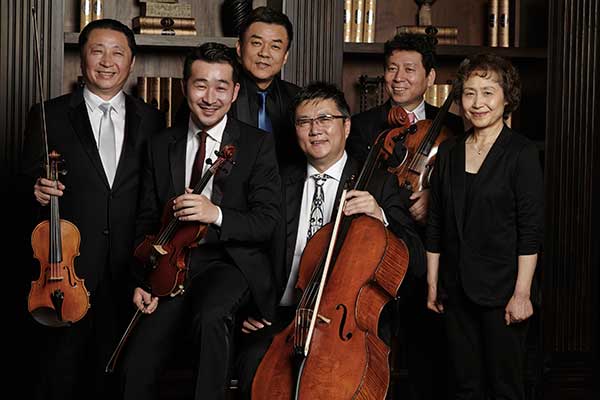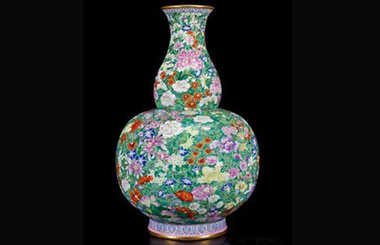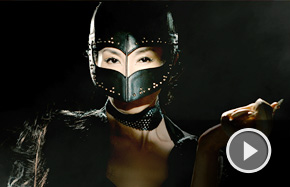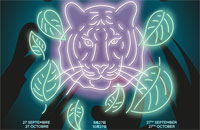Creating a Chinese musical message for a global audience
 |
|
Chinese tenor Fan Jingma (third from left) gives a concert along with other performers.[Photo by Wang Xuan/China Daily] |
Chinese tenor Fan Jingma stops mid-sentence because something is bothering him. "It's too loud. I cannot concentrate and think," he says of the background music being played in the lobby of a high-rise building located in downtown Beijing.
"We have so much distraction in our daily lives," Fan says after moving to a quieter place. "We receive many messages every day, but how many of them are healthy and useful for our ears and eyes?"
Fan is in the building, where he is to give a concert along with other performers on Sunday, including China Philharmonic's musicians, cellist Guan Zhengyue, pianist Chen Min and violinist Chen Yun.
"I hope the audience will listen to the music quietly. The concert is unplugged without dazzling stage sets and musicians won't wear heavy makeup. It's all about music," says Fan.
The concert is part of Fan's project, yage, which he initiated in 2008. Yage which means "elegant song", combines bel canto technique, lieder style, and Chinese poetry.
One of the top tenors in China, Fan, 58, came to international attention by winning the prestigious Cardiff Singer of the World Competition in Britain in 1987, and the first prize at the Opera Index Vocal Competition in 1991 in New York.
In 1988, he left China to pursue his bel canto studies under Italian opera singer Carlo Bergonzi, and he then moved to New York to study with Franco Corelli.
Over the decades, he has performed at major opera houses around the world and his operatic repertoire includes title roles in Faust, Don Carlos, Tosca, La Traviata and The Magic Flute.
The idea of introducing yage to audiences came from Fan's long career of performing in Western opera houses.
"I traveled almost the entire world. During this period and in all the places I went, I saw that Western vocal music (not the symphonies and other instrumental works) of Mozart, Beethoven, Schumann, Schubert, Mahler, Faur??, Berlioz, Tchaikovsky, Rachmaninoff, and, of course, all those Italian bel canto art songs and folk songs, sung around the world and appreciated by every culture. But Chinese music, on the other hand, was enjoyed only within China and by ourselves. Why? This bothered me and occupied my thoughts," he says.
He also says that his project came from his attachment to Chinese poetry and music.

















